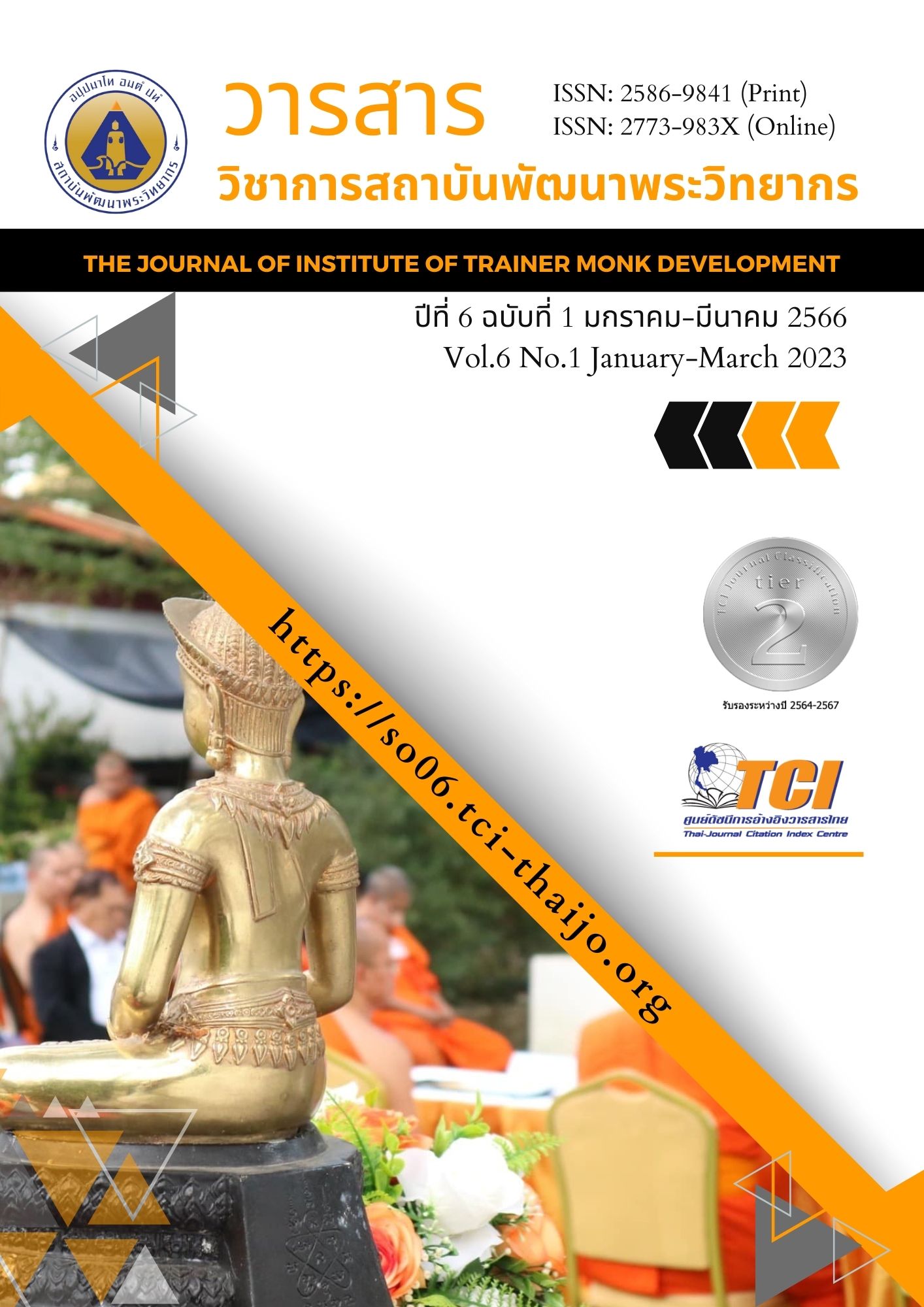The Effects of Using CIPPA Learning Management Model in the Topic of the Plant Life on Learning Achievement and Problem Solving Ability of Grade 7 Students at Bangplama “Soongsumarnphadungwit” School in Suphanuri Province
Main Article Content
Abstract
This Article aimed to study (1) compare learning achievement in the topic of the Plant Life of Grade 7 students in the group that learned under CIPPA learning management model with the counterpart learning achievement of students in the group that learned under the traditional method learning management; (2) compare the problem solving ability of Grade 7 students in the group that learned under CIPPA learning management model with the counterpart ability of students in the group that learned under the traditional method learning management; and (3) compare the problem solving abilities of Grade 7 students before and after learning under CIPPA learning management model.The sample was65 Grade 7 students in two intact classrooms of Bang Plama “Soongsumarnphadungwit” School in Suphan Buri Province during the first semester of the 2022 academic year.They was selected by random sampling. Then, students in one classroom were randomly assigned as the experimental group, while those in the other classroom were randomly assigned as the control group. The employed research instruments were (1) learning management plans for CIPPA learning management model, (2) learning management plans for the traditional method learning management, (3) a science problem solving ability test, and (4) a science learning achievement test. Analysis data by Descriptive statistics and Content Analysis. The research results were found as follows;
- 1. the learning achievement of Grade 7 students in the group that learned under CIPPA learning management model was significantly higher than the counterpart learning achievement of the students in the group that learned under the traditional method learning management at the .05 level of statistical significance.
- 2. the post-learning problem solving ability of Grade 7 students who learned under CIPPA learning management model was significantly higher than their pre-learning counterpart ability at the .05 level of statistical significance.
- 3. the post-learning problem solving ability of students in the group that learned under CIPPA learning management model was significantly higher than the post-learning counterpart ability of students in the group that learned under the traditional method learning management at the .05 level of statistical significance.
Article Details

This work is licensed under a Creative Commons Attribution-NonCommercial-NoDerivatives 4.0 International License.
บทความที่ได้รับการตีพิมพ์เป็นลิขสิทธิ์ของวารสารวิชาการสถาบันพัฒนาพระวิทยากร
ข้อความที่ปรากฎอยู่ในบทความที่ได้รับการตีพิมพ์ในวารสาร ถือเป็นความรับผิดชอบของผู้เขียนบทความ และข้อคิดเห็นนั้นไม่ถือว่าเป็นทัศนะและความรับผิดชอบของกองบรรณาธิการวารสารวิชาการสถาบันพัฒนาพระวิทยากร
References
ฉัตรลดา สัพโส. (2561). การพัฒนาทักษะกระบวนการทางวิทยาศาสตร์เรื่อง วัสดุในชีวิตประจำวัน โดยการจัดการเรียนรู้โมเดลซิปปา ร่วมกับแผนผังความคิด ของนักเรียนชั้นประถมศึกษาปีที่ 5. ครุศาสตรมหาบัณฑิต (ค.ม.) สาขาวิชาการสอนวิทยาศาสตร์. มหาวิทยาลัยราชภัฏสกลนคร.
ชนนิกานต์ ฉ่ำเมืองปักษ์. (2561). การพัฒนาการจัดการเรียนรู้ด้วยรูปแบบซิปปาที่ส่งเสริมความสามารถในการแก้ปัญหาและการ เชื่อมโยงทางคณิตศาสตร์เรื่อง ลำดับและอนุกรม ของนักเรียนชั้นมัธยมศึกษาปีที่ 5. ปริญญาวิทยาศาสตรมหาบัณฑิต สาขาวิชาคณิตศาสตรศึกษา. มหาวิทยาลัยมหาสารคาม.
ทิศนา แขมณี. (2542). การจัดการเรียนการสอนที่เน้นผู้เรียนเป็นศูนย์กลาง: โมเดล CIPPA MODEL.วารสารคุรุศาสตร์. 30(4): 65-70.
ทิศนา แขมณี. (2555). ศาสตร์การสอน: องค์ความรู้เพื่อการจัดการะบวนการเรียนรู้ที่มีประสิทธิภาพ.พิมพ์ครั้งที่ 15 .กรุงเทพมหานคร: สำนักพิมพ์จุฬาลงกรณ์มหาวิทยาลัย.
ปาณิสรา อามะรีณ์. (2561). การพัฒนาความสามารถด้านการคิดอย่างมีวิจารณญาณและผลสัมฤทธิ์ทางการเรียน วิชาชีววิทยา เรื่องยีนและโครโมโซม ของนักเรียนชั้นมัธยมศึกษาปีที่ 6 โดยการจัดการเรียนรู้รูปแบบซิปปาร่วมกับเทคนิคการใช้คำถาม. วิทยานิพนธ์. มหาวิทยาลัยรังสิตปทุมธานี.
ล้วน สายยศ และอังคณา สายยศ. (2538). เทคนิคการวิจัยเพื่อการศึกษา. พิมพ์ครั้งที่ 5. กรุงเทพฯ: สุวีริยาสาส์น.
วิจารณ์ พานิช. (2556). วิธีสร้างการเรียนรู้เพื่อศิษย์ในศตวรรษที่ 21. กรุงเทพฯ. ตถาตาพับบลิเคชัน.
สถาบันส่งเสริมการสอนวิทยาศาสตร์และเทคโนโลยี. (2555). การจัดสาระการเรียนรู้กลุ่มวิทยาศาสตร์ หลักสูตรการศึกษาขั้นพื้นฐาน. กรุงเทพมหานคร: สถาบันส่งเสริมการสอนวิทยาศาสตร์และเทคโนโลยี.
สถาบันส่งเสริมการสอนวิทยาศาสตร์และเทคโนโลยี. (2564). ผลการประเมิน PISA 2018 การอ่าน คณิตศาสตร์ และวิทยาศาสตร์. กรุงเทพฯ: สสวท.
Weir. (1974). Problem Solving is Everybody’s Problem. Science Teacher,4, 16-18.


